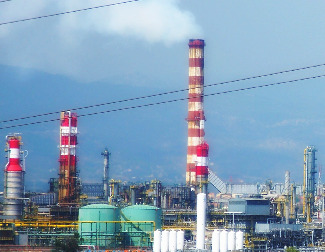The role of public opinion on environmental projects

The aim of this work is to understand the role of trust in a situation in which public information is scarce; in this case regarding the installation of a Centre for Advanced Research in Technology, CITA. The centre will be located in El Bierzo, a coal-rich region located in northwestern Spain, where it will carry out research on cleaner and more efficient use of fossil fuels.
This paper aims to reach an understanding of the role played by trust in a situation where public information is scarce, vis-à-vis the installation of a Centre for Investigation in Advanced Technologies (Centro de Investigación de Tecnologías Avanzadas, CITA). The CITA is to be located in El Bierzo, a coal-rich region in the northwest of Spain, where it will carry out research on the cleaner and more efficient use of fossil fuels. Besides the important component of innovation, the development of this technology can entail certain risks for the health of the population and for the environment, since it implies the development of procedures for capturing and transporting the CO2 resulting of the combustion to the underground. Potential impacts on local residents, animals, vegetation, as well as long-term integrity of storages, groundwater quality or rock integrity are issues that will need to be monitored on Carbon Capture Storage projects.
The CITA is being promoted by a research body linked to the Spanish Ministry of Science and Innovation, which conducts advanced applied research into energy sources and the environment. Hence, the situation is one where a public research organisation, practically unknown to the potential host community, is driving forward the development of a centre for an emerging technology, when the regulatory framework for that technology has not yet been defined. Data from semi-structured interviews (n=15), a questionnaire survey (n=400) and focus group sessions (2) are drawn together to reveal how the local community perceives the proposed CITA scheme and the promoter institutions, and how this relates to the level of trust placed in the project promoters.
Results illustrate how the information that the local community had received about the CITA project up to the moment of this study, was deemed unclear and insufficient by members of all three sample groups. This could have engendered a lack of public trust in the promoters and regulators of the technology centre. However, this assumed lack of trust should be questioned further given that, even against a backdrop of partisan politics and controversy, members of the public were still inclined towards trusting local and regional public institutions and a group of experts (in this case the project promoter) as suitable information sources. As such, it may be reasonable to say that, as sources of information on such matters, public administrations and promoter organisations still enjoy a fairly high level of public regard. In other words, they are trustworthy. Moreover, they are deemed trustworthy despite the fact that the most widespread perception observable amongst the entire survey population was that information on CITA was lacking, if not, confusing.
In the case of emerging technologies, where lack of public knowledge combines with a certain degree of scientific uncertainty, technological projects can be seriously compromised by community resistance and public opposition. However, in this particular case, potential conflicts seem to have been neutralised by a generally positive predisposition towards the technology involved and its institutional promoter. However, it should be noted that the community’s attitude towards the CITA project could change in the short and long terms depending on how it is eventually publicised, established and managed in the region.
References
"The siting of a research centre on clean coal combustion and CO2 capture in Spain: Some notes on the relationship between trust and lack of public information". Prades, Ana; Espluga, Josep; Real, Marta; Solá, Rosario. JOURNAL OF RISK RESEARCH, 12 (5): 709-723 2009.


